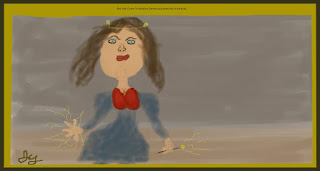Some notes on Linux distros
There are times when I really would like to have several desk top computers set up. I don't. Or, at least have two, one to use and one for experimentation with different Linux distros. I do have Virtual Box, but that is not the same as having a distro installed on a computer.
For stability, I have to say that I believe Linux Mint is the best. Or, perhaps I think that because it is easy to use. There is very little to do after installing Linux Mint, whereas other distros require a bit of work to set up after installation.
But, there certainly are times when I like the idea, perhaps a bit romanticized, of Debian. Debian is the polar opposite of Mint when it comes to ease of use and set up. There is a lot that has to be done after installation generally. I suppose it could be used as is upon installation, but there are things that one might want from an OS that have to be gotten after the installation process with Debian.
And then, because I am a person who like to attempt to create various types of art I suppose, whether being visual, video, or audio - there is one of my favorite distros, Ubuntu Studio. There is always something more that could be added from the repos, but the software is pretty much there to create art upon installation of Studio.
Of course, any distro (although I prefer Debian based ones) can be made to suit the needs of the individual user. It is just a matter of taking the time to set things up, and finding the right software in the repos.
For multi-media uses, one could argue that Windows is superior, but I don't think I would like to go back to Windows anymore. I prefer Linux instead.
For stability, I have to say that I believe Linux Mint is the best. Or, perhaps I think that because it is easy to use. There is very little to do after installing Linux Mint, whereas other distros require a bit of work to set up after installation.
But, there certainly are times when I like the idea, perhaps a bit romanticized, of Debian. Debian is the polar opposite of Mint when it comes to ease of use and set up. There is a lot that has to be done after installation generally. I suppose it could be used as is upon installation, but there are things that one might want from an OS that have to be gotten after the installation process with Debian.
And then, because I am a person who like to attempt to create various types of art I suppose, whether being visual, video, or audio - there is one of my favorite distros, Ubuntu Studio. There is always something more that could be added from the repos, but the software is pretty much there to create art upon installation of Studio.
Of course, any distro (although I prefer Debian based ones) can be made to suit the needs of the individual user. It is just a matter of taking the time to set things up, and finding the right software in the repos.
For multi-media uses, one could argue that Windows is superior, but I don't think I would like to go back to Windows anymore. I prefer Linux instead.
